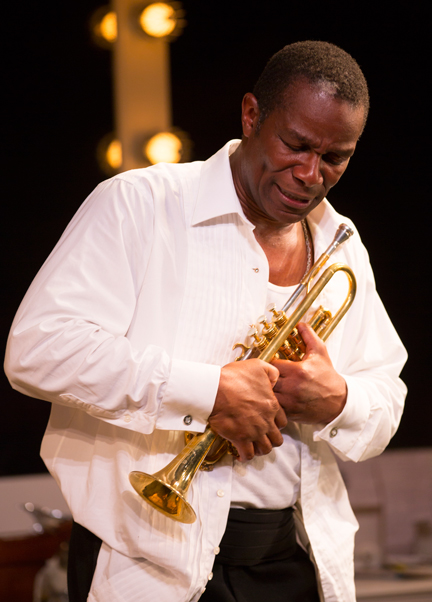 No more rehearsals, no more previews: Satchmo at the Waldorf opens tonight at Long Wharf Theatre in New Haven.
No more rehearsals, no more previews: Satchmo at the Waldorf opens tonight at Long Wharf Theatre in New Haven.
At this point I don’t have much of anything left to say, so instead I’ll post a link to a piece whose third paragraph was surely designed to keep me modest. The author originally spelled my name “Teacher Teachout.” (Yes, it’s been fixed.) I’ve spent my whole life spelling my last name for people who can’t quite bring themselves to believe that it’s spelled the way it sounds, but this was the first time that anybody ever fouled up my first name!
Thanks to everyone out there for your kind words of encouragement. The adventure that is Satchmo at the Waldorf is far from over, but this is still a big night for all of us up in New Haven. Long Wharf is one of America’s top regional theaters, and I never imagined that my play would ever be done there. Now it’s happening.
I’m reminded of the scene from the play in which Louis Armstrong talks about his rise to fame:
And then, this one night we playing in a movie house and they show this Looney Tunes cartoon before the feature, and you know what? I’m in it. Look up at the screen and there’s this trumpet-playing angel…and it’s me. Can’t get no more famous than that.
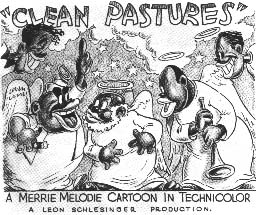 Clean Pastures, the cartoon in question, is no longer shown on TV–Friz Freleng’s well-meaning caricatures of Armstrong, Cab Calloway, Stepin Fetchit, the Mills Brothers, Bill “Bojangles” Robinson, and Fats Waller are now understandably regarded as racially insensitive–but in 1937 Armstrong would surely have seen it as proof of his decisive emergence as a full-fledged pop-culture icon.
Clean Pastures, the cartoon in question, is no longer shown on TV–Friz Freleng’s well-meaning caricatures of Armstrong, Cab Calloway, Stepin Fetchit, the Mills Brothers, Bill “Bojangles” Robinson, and Fats Waller are now understandably regarded as racially insensitive–but in 1937 Armstrong would surely have seen it as proof of his decisive emergence as a full-fledged pop-culture icon.
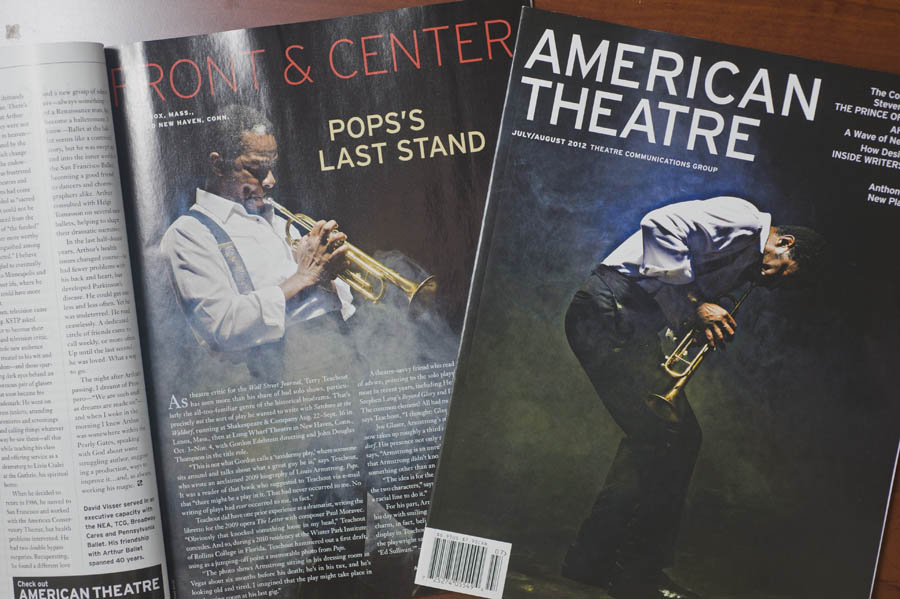 Needless to say, I’m not famous and never will be. There’s no such thing as a famous playwright anymore, much less a famous critic. Still, I have no doubt that it’s going to feel very special–perhaps even a little bit eerie–for me to sit in the audience tonight and watch my first play being performed on the stage of Long Wharf Theatre.
Needless to say, I’m not famous and never will be. There’s no such thing as a famous playwright anymore, much less a famous critic. Still, I have no doubt that it’s going to feel very special–perhaps even a little bit eerie–for me to sit in the audience tonight and watch my first play being performed on the stage of Long Wharf Theatre.
As W.H. Auden wrote in his libretto for Benjamin Britten’s Paul Bunyan, “Once in a while the odd thing happens,/Once in a while the dream comes true.” So it does. So it has.


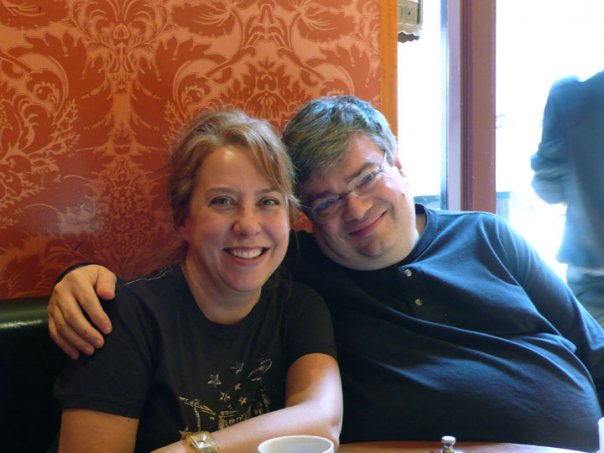 Mrs. T and I got married five years ago last night. The exigencies of getting
Mrs. T and I got married five years ago last night. The exigencies of getting 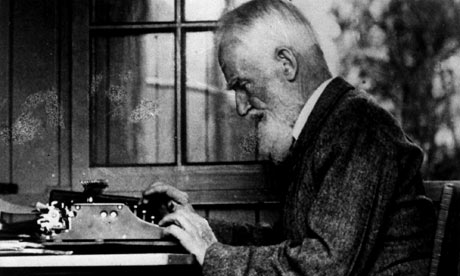 Well, no, I’m not. I definitely didn’t write Satchmo at the Waldorf to prove that critics are capable of writing plays. (George Bernard Shaw settled that one a long time ago.) Nor did I write it to prove that Louis Armstrong was a great artist, or that Dizzy Gillespie and Miles Davis were wrong to call him an Uncle Tom.
Well, no, I’m not. I definitely didn’t write Satchmo at the Waldorf to prove that critics are capable of writing plays. (George Bernard Shaw settled that one a long time ago.) Nor did I write it to prove that Louis Armstrong was a great artist, or that Dizzy Gillespie and Miles Davis were wrong to call him an Uncle Tom.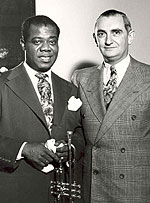 It stands to reason that I wouldn’t want to create that kind of art. My interests lie elsewhere. Maurice Ravel affixed to his Valses nobles et sentimentales this epigraph by the French poet
It stands to reason that I wouldn’t want to create that kind of art. My interests lie elsewhere. Maurice Ravel affixed to his Valses nobles et sentimentales this epigraph by the French poet